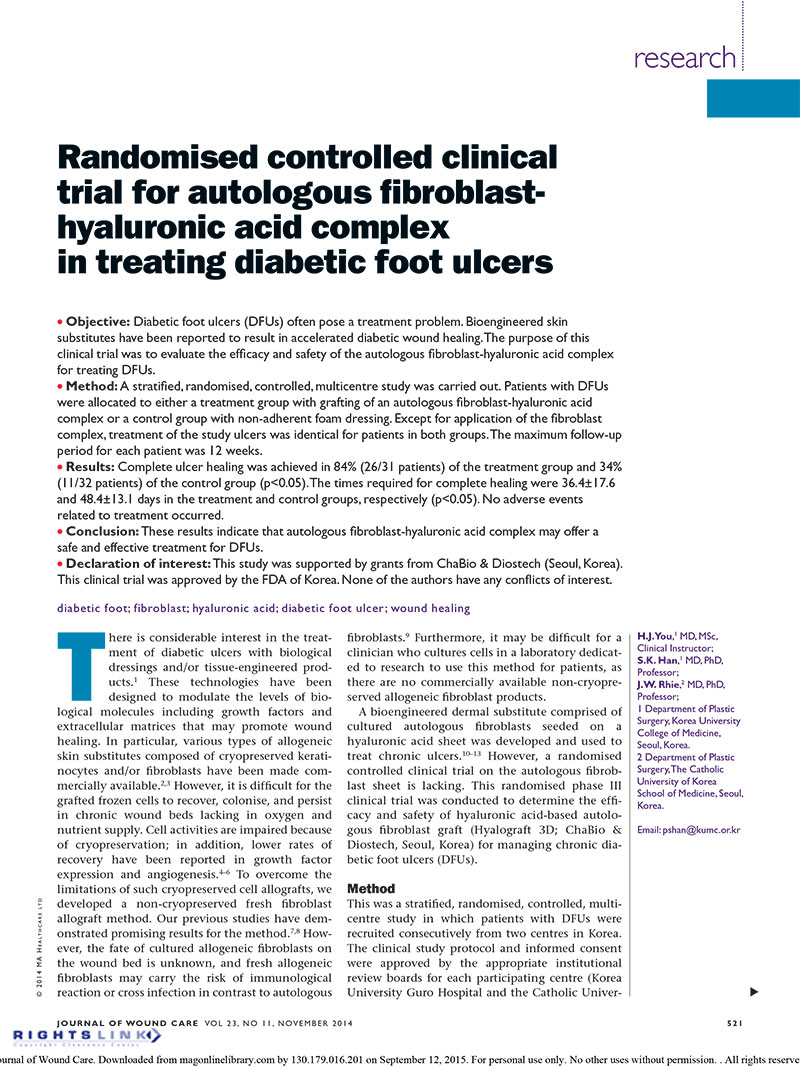Autologous fibroblast-hyaluronic acid complex in treating diabetic foot ulcers

Randomized controlled clinical trial for autologous fibroblast-hyaluronic acid complex in treating diabetic foot ulcers
Article specifications
Thisstratified, randomized, controlled, multicenter study was published in 2014 in Journal of wound care (IF 2016:1.205) by Korean specialists. The purpose of this clinical trial was to evaluate the efficacy and safety of the autologous fibroblast-hyaluronic acid complex for treating DFUs. Patients (18 years or older with type 1 or 2 diabetes, a foot ulcer ≥1.0cm2 in size that did not exhibit signs of healing for 6 weeks prior to inclusion, Wagner grade 1 or 2) and adequate circulation as evidenced by transcutaneous oxygen pressure ≥30mmHg). with DFUs were allocated to either a treatment group with grafting of an autologous fibroblast-hyaluronic acid complex or a control group with non-adherent foam dressing. Except for application of the fibroblast complex, treatment of the study ulcers was identical for patients in both groups. The maximum follow-up period for each patient was 12 weeks. total of 65 patients with DFUs were included in this clinical trial between December 2007 and April 2012. 33 were assigned to the treatment group and 32 were assigned to the control group. Two patients in the treatment group were excluded before application of the autologous fibroblast-hyaluronic acid complex owing to contamination during cell culture.
Results
Complete wound healing occurred after 12 weeks in 26 patients (84%) in the treatment group and 11 patients (34%) in the control group. the use of autologous fibroblast-hyaluronic acid complex was compared with standard care in a larger study population than that used in a previous pilot study.11 This treatment was superior to the control treatment with respect to complete wound healing rate and time for wound closure. In addition, the safety and tolerability results were excellent; no adverse events related to the study treatment occurred. Therefore, adding the autologous fibroblast-hyaluronic acid complex to a regimen of conventional DFU management, including debridement, infection control, and pressure offloading, may result in significant benefit to the patient.
Tags: Korea wound care Clinical trial 2014
